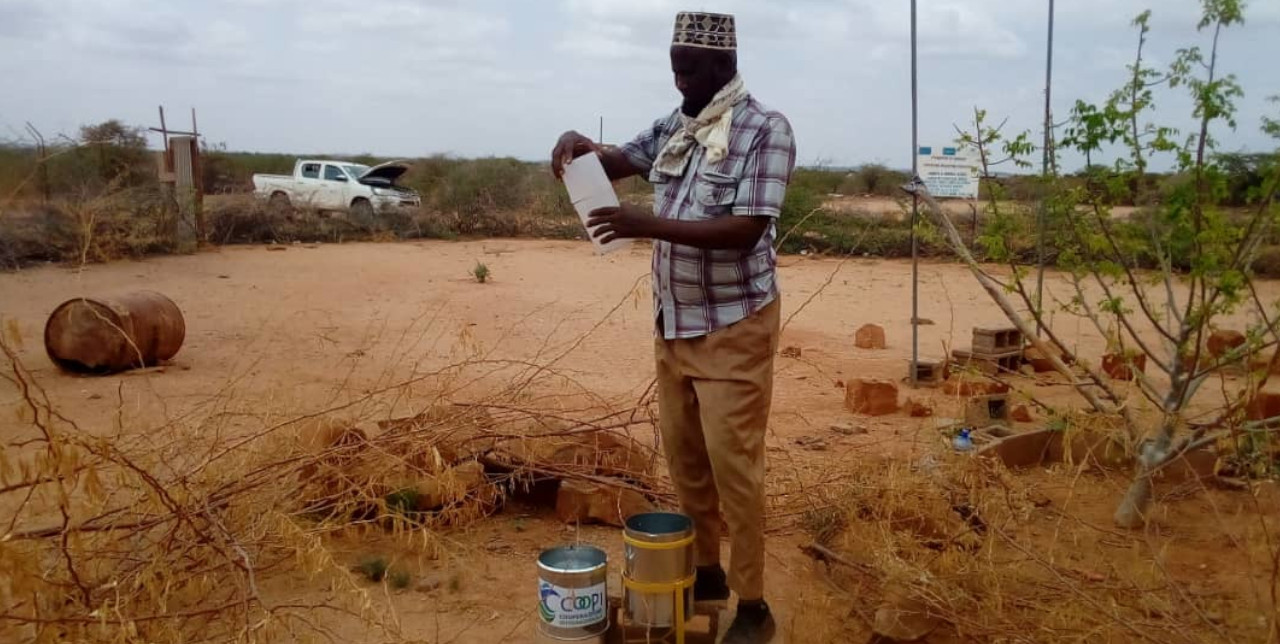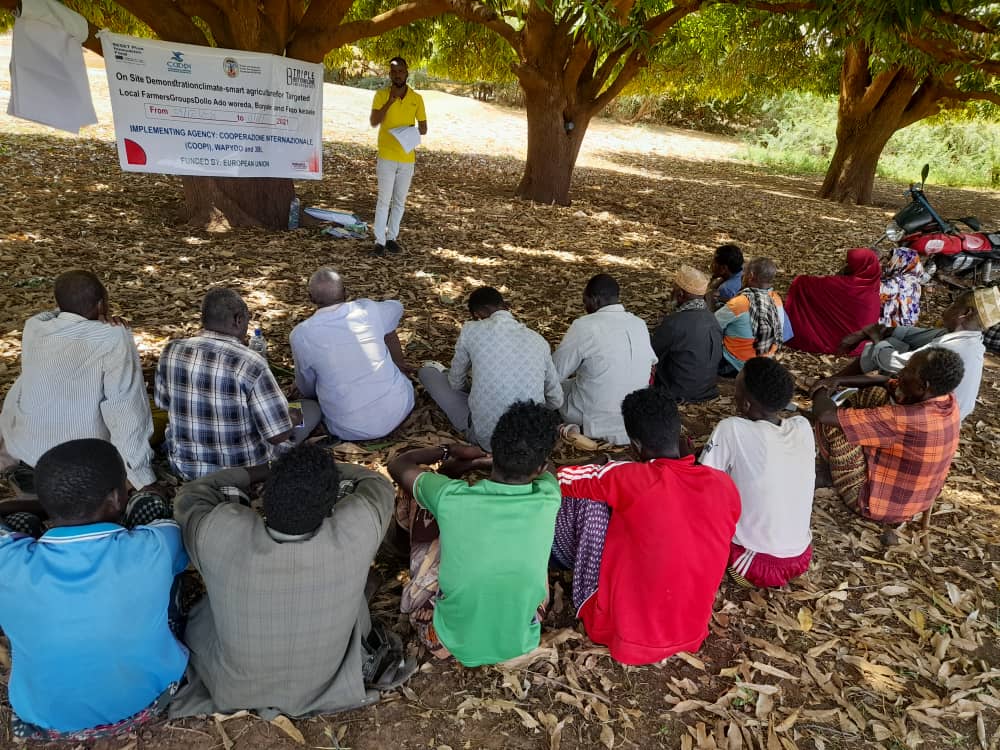26-01-2023 | di COOPI
Ethiopia. With the European Union, Mohammed became an entrepreneur
Mohammed lives in Fikow, in the province of Dolo Ado. Until a few years ago, he was jobless, wandering the village aimlessly and without prospects. Mohammed tells us:
I had no regular source of income and I was therefore forced to live with my parents. I was worried about my future in the village and did not know what to do. I felt hopeless, but everything changed when, two years ago, I received assistance and support to look for job opportunities and undertake business activities.
COOPI - Cooperazione Internazionale is active in the area with the project 'RESET PLUS INNOVATION', entitled 'Improving farmers' livelihoods by testing a model integrating technology transfer, climate-enhanced agriculture and social transformation', funded by the European Union. The overall objective of the project is to contribute to strengthening the resilience of Ethiopian farmers by supporting the transition from subsistence to modern, adaptive agriculture.
I was offered entrepreneurial skills training, which taught me how to run a business and how to make a profit from it. In addition, we were provided with money to buy seeds, fertilisers, chemicals and more to start our business.
Later, I was able to sell the seeds to farmers in the neighbourhood. I made such a good profit right away that I ordered another supply, increasing the quantity and variety of seeds and including pesticides. After a few days, we managed to sell all these products. My life has definitely changed, I have become a person with a job and I no longer wander around the village. Now all I do is think about my future: I want to become a proper entrepreneur, managing to get more varieties of seeds and clothes to sell.
Mohammed says that thanks to the profits he made, he was able to buy three goats, clothes and new shoes. Currently, the business is still open and regularly sells different types of seeds and other products. He says he also bought some seeds for his father to plant on the small farm to help support his family's needs.

Ethiopia is the second most populated country in Sub-Saharan Africa and the rapid population growth puts a strain on available natural resources. The economy is mainly based on pastoralism and agriculture, but frequent droughts in the country expose it to frequent crises, food insecurity and strong migration flows. To cope with this problem, COOPI has been intervening since 1995 to improve the food security of the most vulnerable groups through the integration and diversification of livelihoods and the increase of production capacities. It also encourages the development of local economic initiatives alongside a more integrated and careful protection of natural resources by communities.




 Ethiopia
Ethiopia
